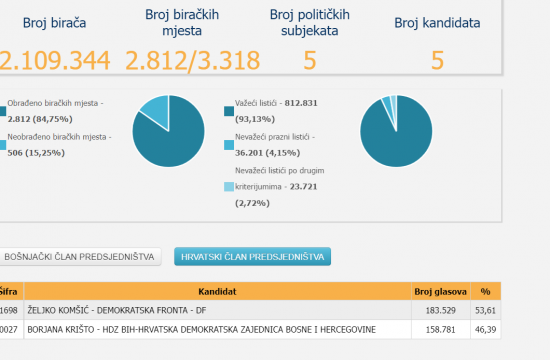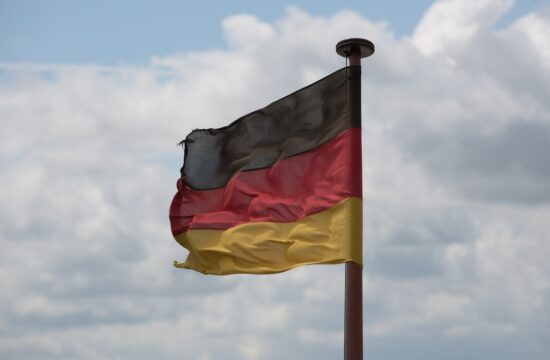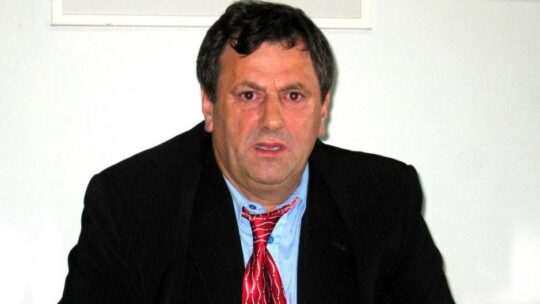UK Prime Minister Theresa May was plunged into a new political crisis on Thursday as Brexit Secretary Dominic Raab resigned, just hours after she won approval from her Cabinet for a draft Brexit deal with the European Union.
Raab – who has been leading Brexit negotiations with the other 27 nations in the bloc – said on Twitter he could not “in good conscience” support the deal. News of his departure was swiftly followed by that of two more ministers, Brexit-backing Work and Pensions Secretary Esther McVey, and junior Brexit Minister Suella Braverman.
Raab is the second Brexit secretary to quit in four months. The resignation is particularly significant because it was unexpected; despite being a leading Brexiter he was thought to have been on board with May's plan.
The development is perilous for May because he could tip the balance for other ministers who are considering their positions. If more Cabinet ministers resign, then it's difficult to see how May could hold her government together. His move could also embolden MPs considering whether to trigger a vote of no-confidence in her leadership.
Even before Raab's shock announcement, a junior Cabinet member – Minister for Northern Ireland Shailesh Vara – had said he was quitting over the deal put before ministers on Wednesday.
In her resignation letter, McVey said the draft agreement “does not honour the referendum” and that she could neither defend it nor vote for it.
Braverman, another staunch Brexiter, tweeted that she found herself “unable to sincerely support the deal” and that the concessions made “do not respect the will of the people.”
May will go before the lower house on Thursday morning to present the plan to MPs for the first time since the draft agreement was approved late Wednesday by her Cabinet.
The draft agreement is already under attack from almost all sides of the UK's political spectrum, with Brexiters and Remainers united in opposition – although for vastly different reasons.
May: ‘Difficult choices’
Standing outside Downing Street on Wednesday following the five-hour Cabinet meeting, May announced that she had won the backing of her senior ministers. “This is a decisive step which enables us to move on and finalize the deal in the days ahead,” she said.
She also spelled out the “difficult choices” the government faced. “When you strip away the detail, the choice before us is clear,” she said. “This deal, which delivers on the vote of the referendum, which brings us back control of our money, laws and borders, ends free movement, protects jobs, security and our union, or leave with no deal, or no Brexit at all.”
What this means is either a) a deal characterized by critics as Brexit in name only, b) no deal on Britain's departure – the cliff-edge option that business leaders most fear – or c) a possible second referendum.
Even as Wednesday evening's meeting drew to a close, rumours swirled in Westminster that May could face a vote of no-confidence from within the ranks of her own Conservative Party.
Raab, McVey and Vara are only the latest ministers to resign over Brexit. Raab's predecessor as Brexit Secretary, David Davis, quit over the so-called Chequers Agreement in July. Other high-profile resignations include former Foreign Secretary Boris Johnson and his brother, Jo Johnson, a junior transport minister.
Former UK Independence Party leader Nigel Farage, who was a driving force behind Brexit, congratulated Raab on his decision, tweeting: “Well done Dominic Raab, a few more and we will be rid of this duplicitous Prime Minister.”
Thursday's front pages reflected the difficulties ahead. The Financial Times predicted a “backlash” following the “ferocious Brexit battle,” while the Daily Mail focused on the Prime Minister's defiant tone with the headline, “I stand to fight.”
The Guardian, which had supported Remain, pointed to the divisions that May's Brexit plan had created under the banner “a split cabinet, a split party and a split nation.”
All sides ‘still have a long road ahead’
Speaking at a press event in Brussels Thursday morning, the EU's chief negotiator Michel Barnier called the draft agreement a “very important moment. What we have agreed… is fair and balanced, takes into account the UK's positions, (and) organizes withdrawal in orderly fashion and ensure no hard border… and lays the ground for an ambitious new partnership.
“Our work is not finished, we still have a long road ahead of us on both sides. We have no time to lose,” he said, before handing the 558-page draft document to Tusk, who, in a tongue-in-cheek exchange with a reporter, said he had read “almost everything” in the document.
“I don't share the (British) Prime Minister's enthusiasm about Brexit as such. Since the very beginning, we have had no doubt that Brexit is a lose-lose situation and negotiations are only about damage control,” said Tusk.
He said the agreement was now being analyzed by all member states and by the end of the week the EU 27 ambassadors would meet to share their views on it.
The commission intends to agree the framework by Tuesday, Tusk said, and a European Council meeting to “finalize and formalize the agreement” will be held on Sunday, November 25.
While he regrets the UK's decision to leave the bloc, he “would do everything to make this farewell the least painful possible for you or for us,” Tusk said, addressing the UK.
Antonio Tajani, President of the European Parliament, Barnier and Guy Verhofstadt, chairman of the Brexit steering group for the European Parliament, are expected to give another news conference later Thursday.
Knives are out
The Conservative Party is deeply divided between hardline Brexit supporters and others who voted to remain in the EU, and Wednesday's breakthrough is only the beginning of what is expected to be a protracted and painful political process.
Chief among hardliners’ concerns is that the agreement will tie the UK to the EU's customs union and parts of the single market free-trade area for years to come, without any say in how the bloc is run.
A sign of the peril faced by May came at Prime Minister's Questions in the House of Commons earlier Wednesday, when one of her own MPs, Peter Bone, accused her of “not delivering the Brexit people voted for.” Bone said May would “lose the support of many Conservative MPs and millions of voters across the country.”
Opposition Labour Party leader Jeremy Corbyn also laid into the PM's deal. “After two years of bungled negotiations, from what we know of the government's deal, it's a failure in its own terms,” Corbyn said.
He slammed May for offering a choice between a “botched deal and no deal.” It seems highly unlikely that his party would support May's deal when it comes to a vote.
Speaking to BBC Radio 5 Thursday morning, shadow Brexit Secretary Kier Starmer said that the document was a “failure of negotiation.”
“We've read and analysed all 500 pages – it's a miserable failure of negotiation,” he said.
Scottish National Party leader Nicola Sturgeon said late Wednesday that she had had a telephone conversation with May in which the Prime Minister had promised that Scotland's “‘distinctive’ interests had been protected,” but that Sturgeon contested that interpretation.
“I pointed out that there isn't a single mention of Scotland in the agreement, that it disregards our interests, and puts Scotland at a serious competitive disadvantage,” Sturgeon tweeted.




